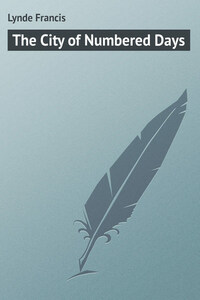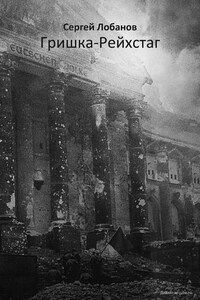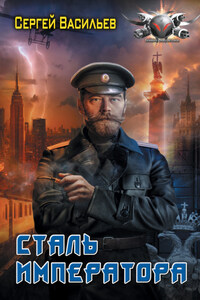As a general proposition, I don't believe much in the things called "hunches." They are bad for the digestion, and as often as not are like those patent barometers that are always pointing to "Set Fair" when it is raining like Noah's flood. But there are exceptions to all rules, and we certainly uncovered the biggest one of the lot – the boss and I – the night we left Portland and the good old Pacific Coast.
It was this way. We had finished the construction work on the Oregon Midland; had quit, cleaned up the offices, drawn our last pay-checks, told everybody good-by, and were on our way to the train, when I had one of those queer little premonitory chills you hear so much about and knew just as well as could be that we were never going to pull through to Chicago without getting a jolt of some sort. The reason – if you'll call it a reason – was that, just before we came to the railroad station, the boss walked calmly under a ladder standing in front of a new building; and besides that, it was the thirteenth day of the month, a Friday, and raining like the very mischief.
Just to sort of toll us along, maybe, the fates didn't begin on us that night. They waited until the next day, and then proceeded to shove us in behind a freight-train wreck at Widner, Idaho, where we lost twelve hours. It looked as if that didn't amount to much, because we weren't due anywhere at any particular time. The boss was on his way home for a little visit with his folks in Illinois, and beyond that he was going to meet a bunch of Englishmen in Montreal, and maybe let them make him General Manager of one of the Canadian railroads.
So Mr. Norcross was in no special hurry, and neither was I. I wasn't under pay, but I expected to be when we reached Canada. I had been confidential clerk and shorthand man for the boss on the Midland construction, and he was taking me along partly because he knows a cracking good stenographer when he sees one, but mostly because I was dead anxious to go anywhere he was going.
But to come back to the Widner delay: if it hadn't been for that twelve-hour lay-out we would have caught the Saturday night train on the Pioneer Short Line, instead of the day train Sunday morning, and there would have been no meeting with Mrs. Sheila and Maisie Ann; no telegram from Mr. Chadwick, because it wouldn't have found us; no hold-up at Sand Creek Siding; in short, nothing would have happened that did happen. But I mustn't get ahead of my story.
It was on Sunday that the jolt began to get ready to land on us. Mr. Norcross had been a railroad man for so long that he had forgotten how to knock off on Sundays, and right soon after breakfast, with the help of a little Pullman berth table and me and my typewriter, he turned our section into a business office, saying that now we had a good quiet day, we'd clean up the million or so odds and ends of correspondence he'd been letting go while we were tussling for the Midland right-of-way through the Oregon mountains.
By this time, you will understand, we were rocketing along over the Pioneer Short Line, and were supposed to be due at Portal City at half-past seven that evening. From where he sat dictating to me the boss was facing forward and now and then an absent sort of look came into his eyes while he was talking off his letters, and it puzzled me because it wasn't like him. I may as well say here as anywhere that one of his strong points is to be always "at himself" under all sorts of conditions.
So, as I say, I was sort of puzzled; and one of the times after he had given me a full grist of letters and had gone off to smoke while I typed a few thousand lines from my notes to catch up, I made a discovery. There were two people in Section Five just ahead of us, a young woman and a girl of maybe fifteen or so, and the Pullman was the old-fashioned kind, with low seat-backs. I put it up that in those absent-eyed intervals Mr. Norcross had been studying the back of the young woman's neck. I was measurably sure it wasn't the little girl's.
Along in the forenoon I made an excuse to go and get a drink of water out of the forward cooler, and on the way back I took a good square look at our neighbors in Number Five. At that I didn't wonder at the boss's temporary lapses any more whatever. The young woman was pretty enough to start a stopped clock – only "pretty" isn't just the word, either; there wasn't any word, when you come right down to it. And the little girl was simply a peach – a nice, downy, rosy peach; chunky, round-faced, sunny-haired, jolly; with a neat little turned-up nose and big sort of boyish laughing eyes that fairly dared the world.
I made a good half-dozen mistakes when I got in behind the old writing machine again and went on with the letters; but never mind about that. As I began to say, things rocked along until we had about worn the day out, and at the second call to dinner Mr. Norcross told me to strap up the machine and put the files away in the grips and we'd go eat. Though I was only his stenographer, and a kid at that, he was big enough and Western enough not to let the buck-private-to-officer gap make any difference, and always when we were knocking about together he made me sit at his table.













